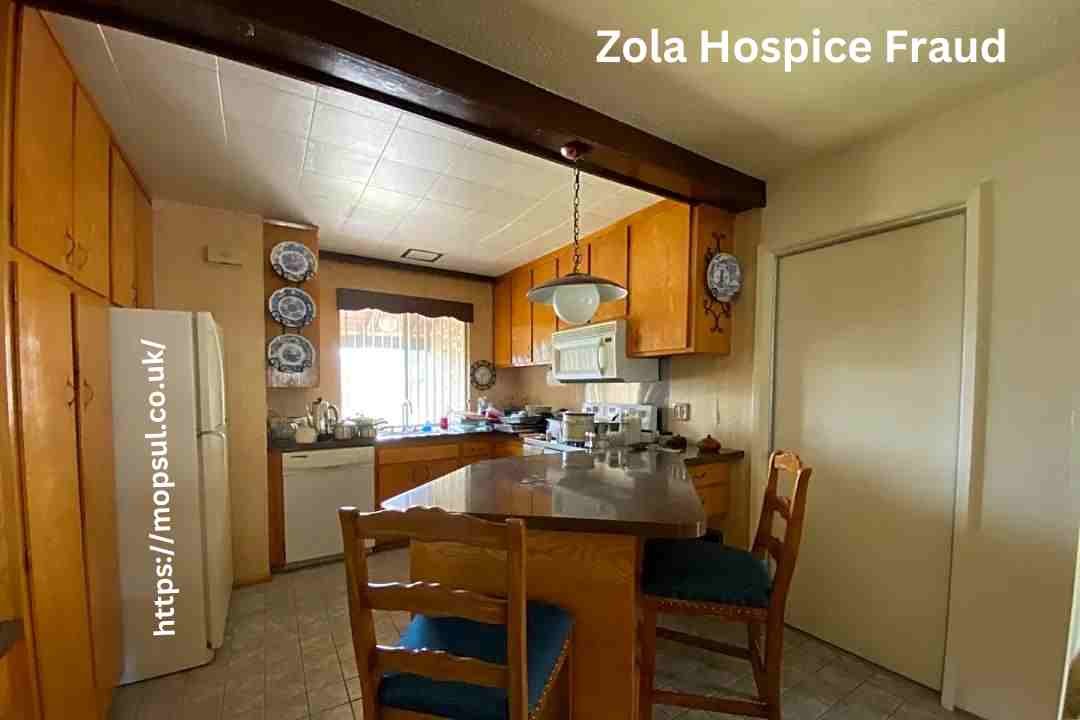Zola Hospice Fraud: Hospice care is a basic help intended to offer solace and backing to at death’s door patients, guaranteeing their leftover days are enjoyed with pride and harmony. Be that as it may, ongoing claims and instances of extortion inside the hospice business have raised huge worries, especially encompassing Zola Hospice. This post plans to reveal insight into the Zola Hospice misrepresentation and its effect on patients and the medical care industry, as well as give direction on shielding yourself and your friends and family from succumbing to such misleading information.
Table of Contents
Understanding Zola Hospice
Zola Hospice was established to provide sympathetic end-of-life care to patients and their families. Their administrations incorporate agony the board, basic reassurance, and help with day-to-day activities, all custom-made to meet the singular requirements of their patients. Regardless of its honourable mission, Zola Hospice has been entangled in allegations of fake activities, discolouring its standing and raising issues about the respectability of its activities.
Signs of Hospice Fraud
Identifying potential fraud in hospice care is crucial for safeguarding vulnerable patients and their families. Here are some red flags and warning signs to watch out for:
- Unnecessary Admissions: Patients being admitted to hospice care despite not meeting the medical criteria for terminal illness.
- Overbilling and Upcoding: Inflating bills by claiming more expensive treatments and services than those provided.
- Inadequate Care: Failure to deliver the promised level of care, including neglecting patient needs and cutting corners.
- Pressure to Enroll: Aggressive marketing tactics and pressure on patients or families to enrol in hospice services.
- Lack of Transparency: Unwillingness to provide clear information about services, costs, and patient rights.
Real-Life Cases
Several documented instances highlight the impact of Zola Hospice fraud on patients and their families:
- Case Study 1: A family reported that their loved one was enrolled in hospice care despite being in relatively good health. The patient received minimal care, and the family later discovered inflated bills for services never rendered.
- Case Study 2: Another patient was pressured into hospice care by aggressive sales tactics, only to receive substandard care that resulted in deteriorating health conditions. The family faced emotional and financial distress due to the fraudulent practices.
These cases underscore the importance of vigilance and due diligence when selecting hospice care providers.
The Legal and Ethical Implications
Hospice misrepresentation sabotages the trust of medical services suppliers and has serious legal and moral consequences. Legally, hospice misrepresentation can result in weighty fines, detainment, and loss of licensure for those involved. Morally, it penetrates the ethical commitment of parental figures to give fair and quality consideration to their patients.
The legal structure overseeing hospice care is intended to safeguard patients and guarantee they receive the services they qualify for. Understanding these guidelines can assist families in perceiving when these regulations are being abused.
Protecting Yourself and Loved Ones
Preventing hospice fraud requires proactive measures. Here are some practical tips to safeguard yourself and your loved ones:
- Research Providers: Investigate hospice care providers thoroughly before making a decision. Look for reviews, ratings, and any history of complaints or legal issues.
- Verify Credentials: Ensure that the hospice facility and its staff are properly licensed and accredited.
- Ask Questions: Don’t hesitate to ask detailed questions about the services offered, the costs involved, and your loved one’s care plan.
- Monitor Care: Regularly check on the quality of care being provided and keep detailed records of services received.
- Be Informed: Educate yourself about your rights as a patient or family member and stay informed about common fraud tactics.
Reporting Fraud
Reporting hospice fraud to the appropriate authorities is crucial if you suspect hospice fraud. Here’s how you can take action:
- Contact Regulators: Reach out to state and federal regulatory bodies that oversee hospice care.
- File a Complaint: Submit a formal complaint with evidence of the suspected fraud.
- Seek Legal Advice: Consult with an attorney specializing in healthcare fraud to understand your options and rights.
There are assets accessible to help you, including the Workplace of Investigator General (OIG) and the Places for Federal Health Care and Medicaid Administrations (CMS), the two of which have components for announcing extortion.
Conclusion
Hospice care should be a safe haven of solace and empathy during life’s most difficult moments. Tragically, extortion cases, especially those including Zola Hospice, take steps to disintegrate this trust. By remaining educated, careful, and proactive, we can safeguard our friends and family from succumbing to deceitful practices. Mindfulness is vital, and we urge you to share this manual to help others explore the intricacies of hospice care misrepresentation.
Remember that shielding the government’s assistance to patients and maintaining the trustworthiness of medical care administrations are aggregate liabilities. We should cooperate to guarantee that hospice care stays an encouraging sign and pride for all who need it.

